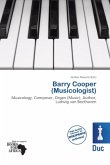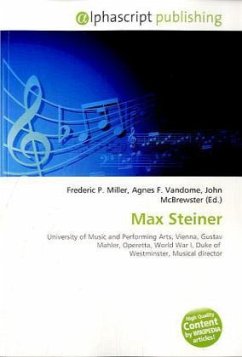Please note that the content of this book primarily consists of articles available from Wikipedia or other free sources online. Max Ernst Unger was a German musicologist. Although he wrote on a variety of subjects, he is chiefly known for his extensive research and writings on the life and works of Ludwig van Beethoven. Unger, the son of a factory owner, studied from 1904 to 1906 at the Leipzig Conservatory, and entered the University of Leipzig in 1908. There, he studied under Heinrich Zöllner and Hugo Riemann. In 1911, he completed a doctorate with a dissertation on Muzio Clementi. After serving in World War I, he worked as editor of the New Journal of Music in 1919 and 1920. From 1932 to 1939, he lived in Zurich and catalogued the valuable Beethoven collection of local industrialist Hans Conrad Bodmer, which was later bequeathed to the Beethoven House in Bonn. In 1939, Unger moved to Volterra in Pisa. While he had been denounced by the Militant League for German Culture as a "musical Bolshevik" in 1935, he cooperated with the Reichsleiter Rosenberg Taskforce and the Amt Rosenberg beginning in 1942 or 1943
Bitte wählen Sie Ihr Anliegen aus.
Rechnungen
Retourenschein anfordern
Bestellstatus
Storno








